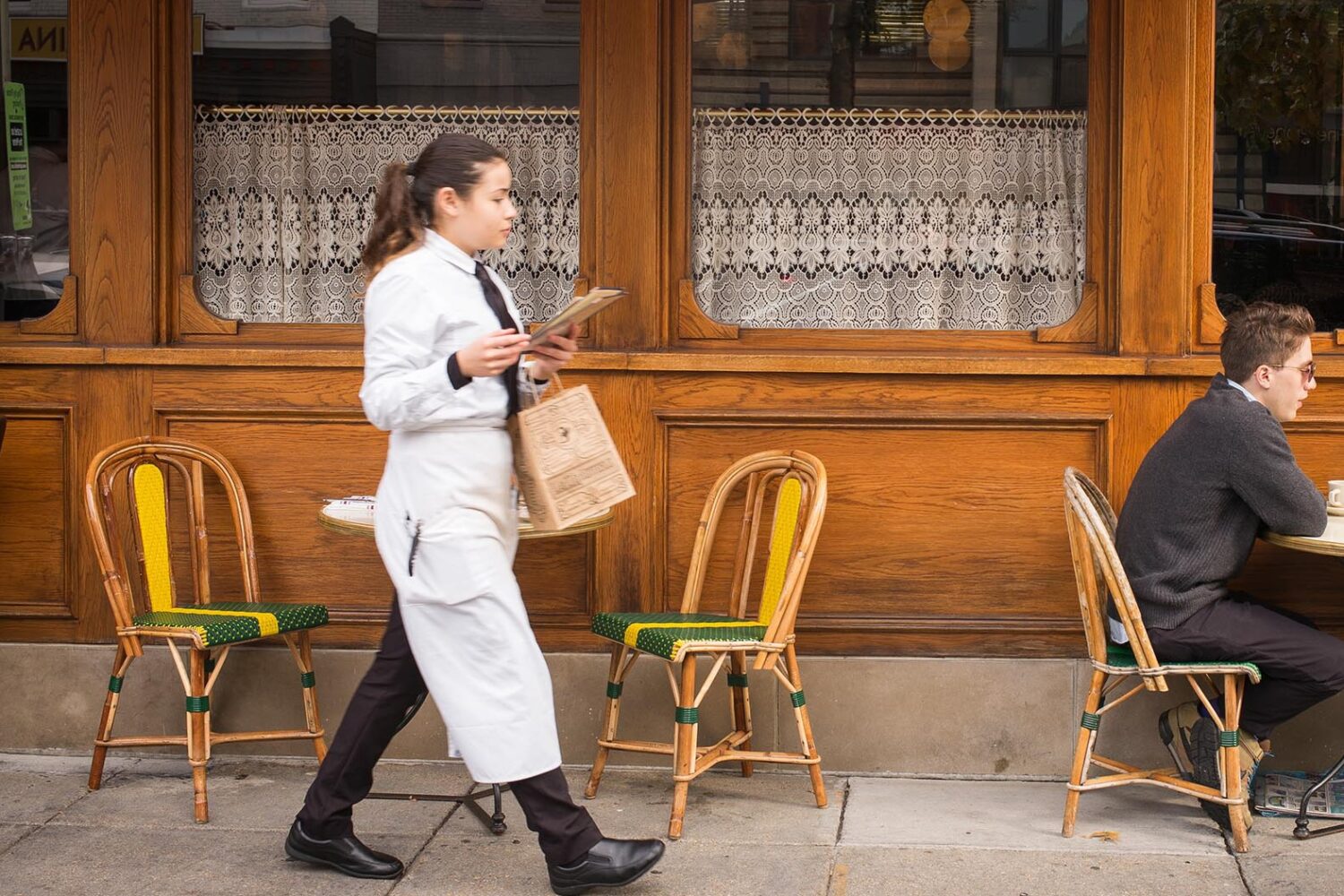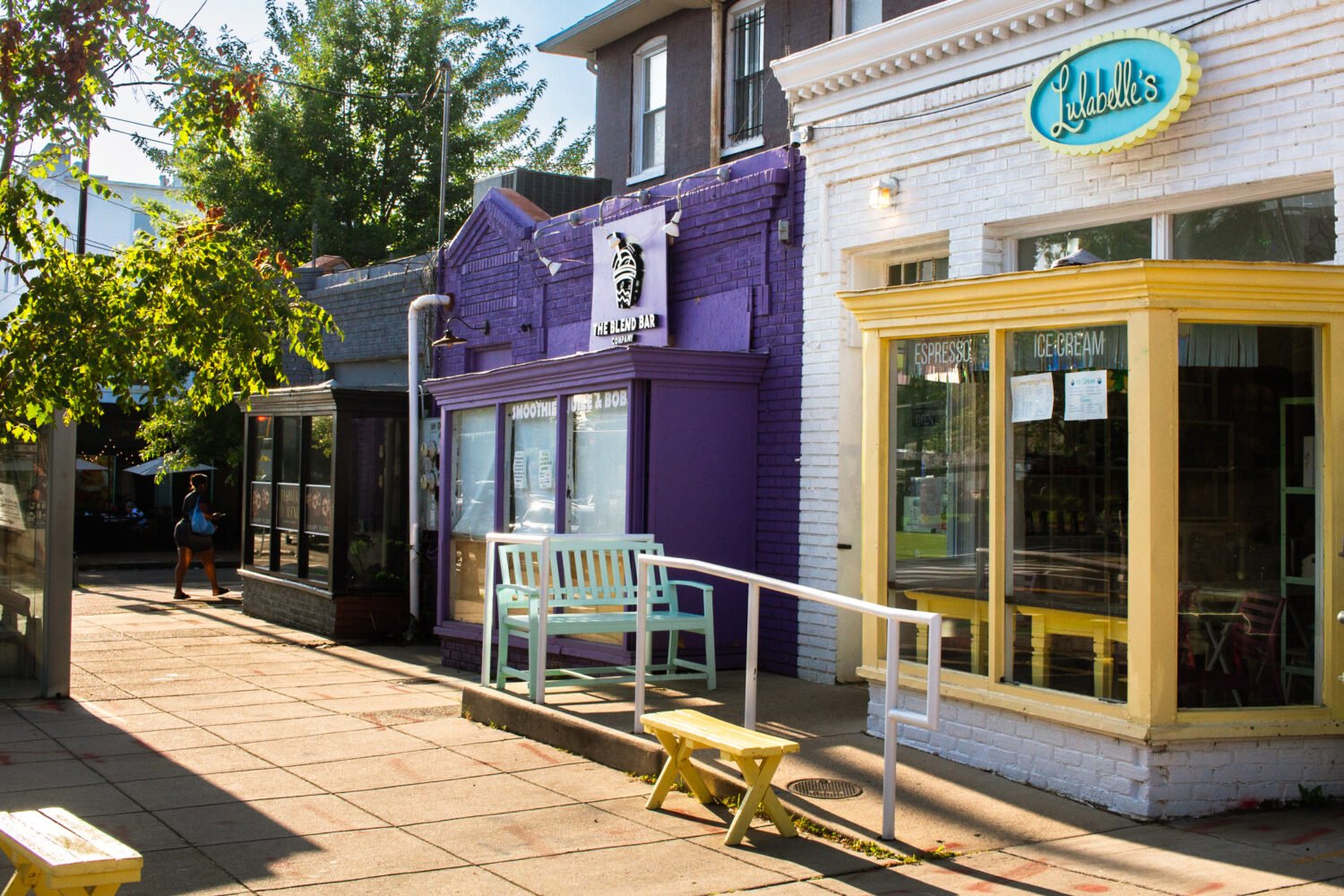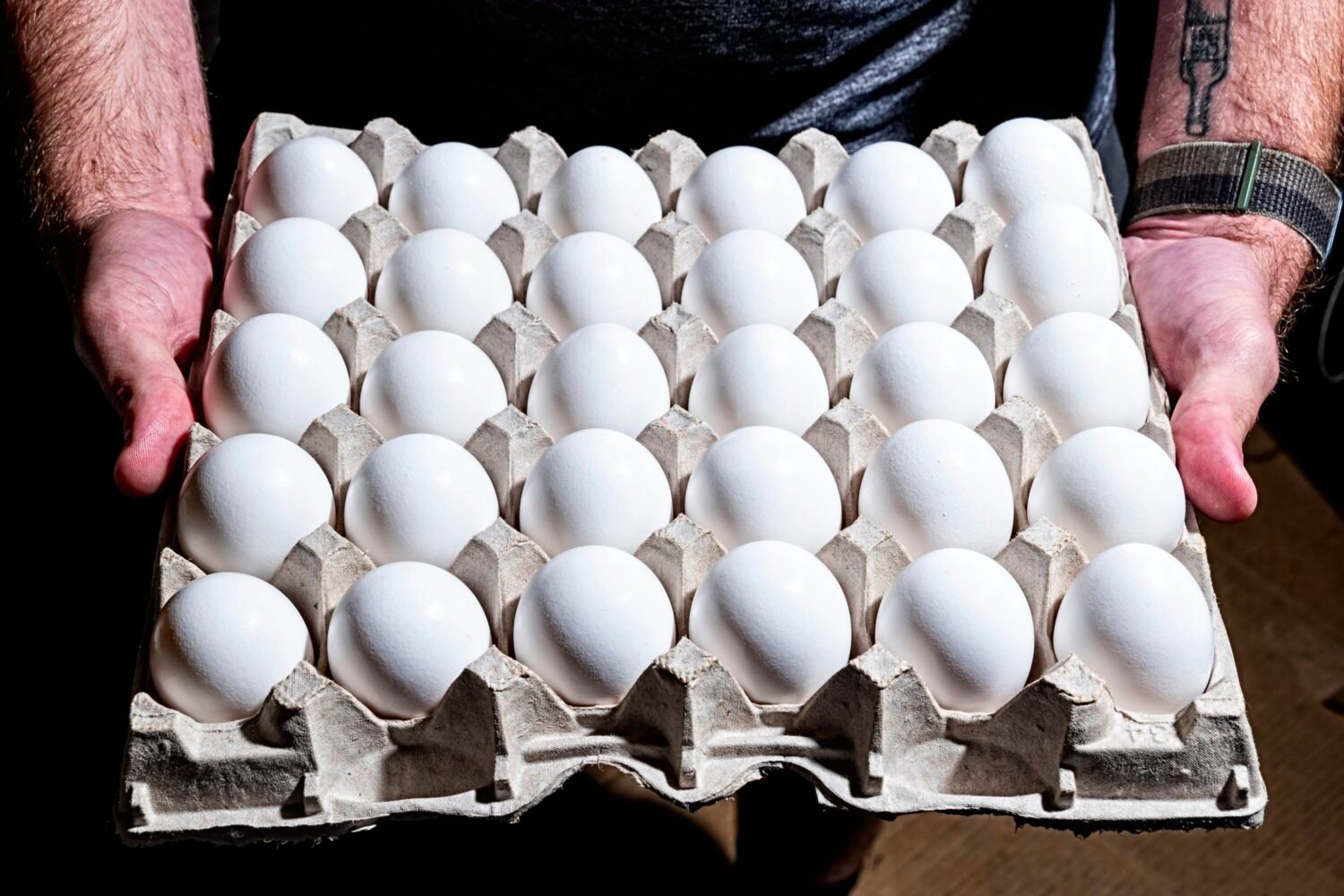The DC Council passed a bill aimed at providing relief for restaurants yesterday, but a debate over how service fees should be used—or whether they should exist at all—dominated the legislative hearing. Council members voted not to speed up the implementation of Initiative 82, which is phasing out the system that allows businesses to subsidize the bulk of wages for tipped workers using customers’ gratuities. They narrowly approved an amendment that aims to protect restaurants from private lawsuits over deceptive marketing if they clearly disclose their fees and cap them at 20 percent. And they also tackled less controversial measures to clear up DC’s liquor liability laws and food delivery rules.
Here’s a fuller look at the issues addressed by the bill, which now heads to Mayor Muriel Bowser’s desk:
Initiative 82 will continue as planned
The tipped hourly wage, currently $8, is set to increase to $10 in July. It will then continue to incrementally rise until it’s on par with the full minimum wage in 2027.
A failed amendment introduced by Council Chair Phil Mendelsohn proposed moving up the timeline to 2025. The Restaurant Association Metropolitan Washington pushed for this “rip off the bandaid” approach in an attempt to speed up the current transition period—which has been messy for restaurants and customers alike—and settle more quickly into a new normal. They argued that the acceleration would help even the playing field between small independent restaurants and large restaurant groups that can more easily absorb the increased labor costs that have come with I-82. RAMW President Shawn Townsend also viewed it as a compromise that would put more dollars in workers’ pockets sooner.
“Some have viewed our attempt to compromise as an opportunity to somehow, someway, shape or form, make it a plot to overturn Initiative 82,” Townsend previously told Washingtonian. “I’m going to say it again: that is not the intention of RAMW. That’s just not something on the radar.”
Opponents argued that changing the Initiative 82 timeline is not what DC residents voted for when they overwhelmingly supported the measure in 2022, and that a quicker timeline would be damaging to many businesses. “It would create a huge financial cliff for smaller restaurants that would lead to a lot of workers losing their jobs and a lot of restaurants maybe closing,” says Eduarda Serafim, coordinator for Fair Price Fair Wage, a coalition of organizations that supported Initiative 82.
In a breakfast meeting before the legislative hearing, Councilmember Brianne Nadeau pulled out a text message from a business owner who said that if the timeline was sped up there is “zero chance our restaurant will make it.”
“If we do this, and a lot of businesses close because they can’t take the hit all at once, the finger will absolutely come back to us,” Nadeau said.
A safe harbor from fee lawsuits?
The legislation has also been a central battleground in the ongoing war around service fees. Many local restaurateurs have turned to fees to compensate for rising labor costs, betting that it’s ultimately less off-putting to diners than jacking up prices. Opponents see these fees as a loophole of Initiative 82 that hurts workers and distorts the will of the voters. The fees have become a cultural lightning rod, too confusing and infuriating many diners—as well as council members.
Proposed amendments to the bill aimed at dictating how fees can be used or banning those that aren’t strictly tips did not make it into the actual legislation. But fees are addressed in other ways. For starters, one amendment that narrowly passed caps fees at 20 percent while aiming to create a legal “safe harbor” for restaurants that clearly disclose fees by protecting them from private lawsuits over said fees. The measure comes in response to recent suits filed by traveler advocacy non-profit Travelers United against the groups behind restaurants like Clyde’s and Mi Vida, accusing both of having deceptive menu fees. (Both groups have since dropped their fees, and both lawsuits have been dropped.)
Clyde’s Restaurant Group President John McDonnell applauded the legislation: “Aside from providing further support of the legality of CRG’s surcharge approach in 2023, more importantly, this will go a long way towards protecting small restaurants who are fighting for survival and do not have the means to fend off expensive and unreasonable legal challenges. All restaurants in the District are trying to resourcefully navigate an incredibly volatile cost environment and many won’t make it.”
Travelers United counsel Lauren Wolfe says the legislation changes nothing—and earlier this week, the group filed another lawsuit against the group behind Proper 21 sports bars. “It’s absurd to have industries think they can get exemptions from DC’s consumer protection law,” she says. “We will continue to sue.”
Rent relief that turned into a debate on service fees
Some restaurants pay rent based on a percentage of their revenue. For this small group, the Council voted that service fee revenue won’t count toward their rent calculations if their leases don’t already specify otherwise. This relatively niche issue spurned a much broader fight over how the term service fee is actually defined. The legislation that passed defines it as going toward base wages or tips of employees. But Fair Price Fair Wage is against fees that subsidize base wages, and fought against language that codifies that definition into law. In their ideal world, restaurants would raise their prices to cover rising labor costs, and diners would continue to tip on top of what they pay for food and drink.
At one point, councilmember Matthew Frumin tried—unsuccessfully—to axe the entire proposal around rent calculations because of the service fee language. “I want to have rules of the road,” he said. “A restaurant could have a 20 percent service fee and keep all of it for the house, none of it going to the workers. And why then should they get a change in their rent calculations?”
Several councilmembers expressed interest in tackling the issues around fees more head-on, so it’s very possible the debate will return to the Wilson Building.
Now, the less controversial stuff …
One of the bigger but slightly wonkier changes involves creating clear liquor liability laws in DC. Vague laws about when or how businesses are liable for the actions of intoxicated guests has made DC home to some of the highest insurance costs for restaurants and bars in the country—in some cases 100 times higher than in Maryland and Virginia, according to RAMW. The change could help DC restaurants and bars save a lot of money.
The legislation also makes temporary rules around food delivery permanent. For example, delivery services like Uber Eats and DoorDash are prohibited from excluding restaurants within four miles from search results. The legislation also prevents the services from limiting the number of available drivers to businesses, and requires restaurants to give delivery drivers access to their restrooms.
















